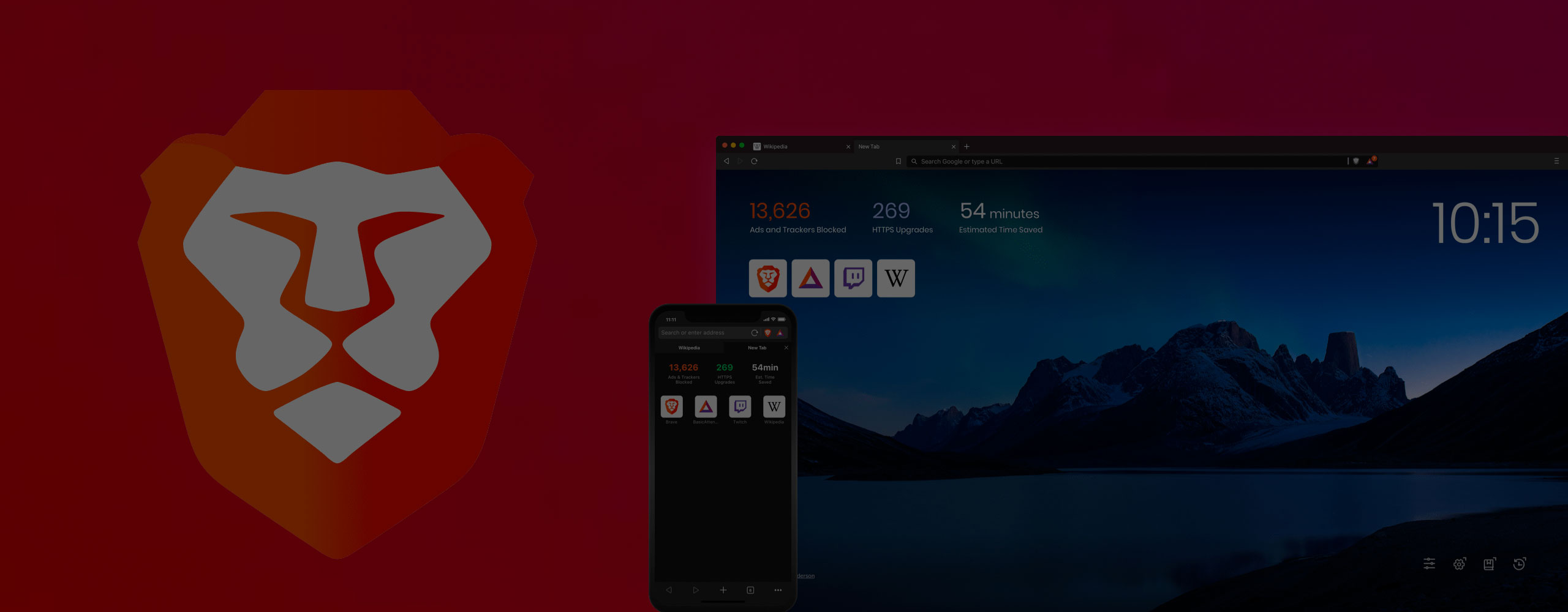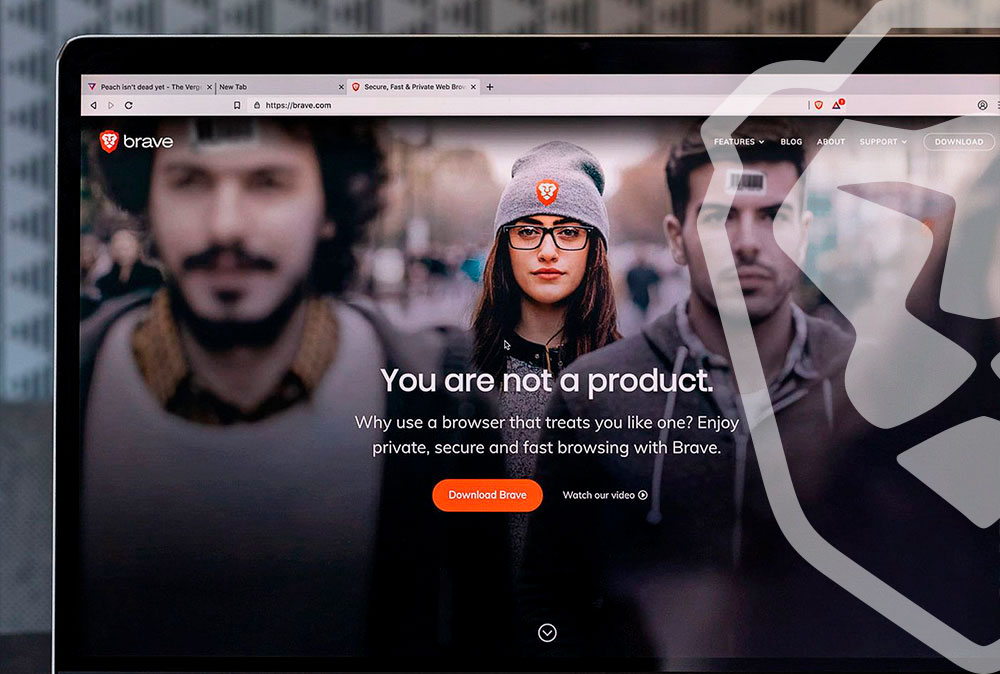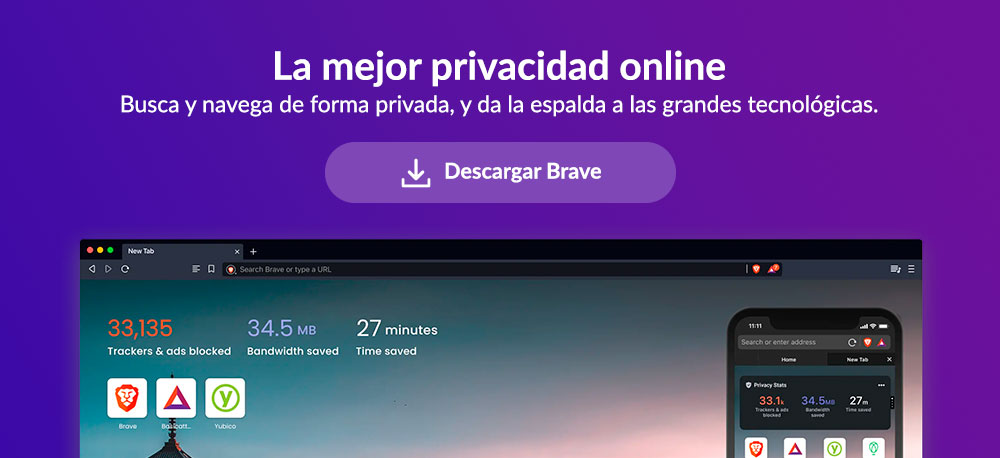
Madrid British Council Concentration Camp
9 December, 2021
COVID Holocaust
15 December, 2021
15 December, 2021
The Internet can be a much freer and more democratic place. With that simple but powerful purpose Brave was born in 2016, a browser that is gaining more followers daily and aims to be an alternative to those big technological browsers that steamroll diversity. As the creators of Brave themselves say: "You deserve a better internet". A revolution is possible, and Brave is proving it by already approaching 36 million monthly users, twice the amount in August 2020.
Brave is not managing to create a solid community with good intentions alone. There are many differences that set it apart from the best-known browsers like Chrome or Safari, owned by the totalitarian technology companies Google and Apple, property of the globalist dictators. It is up to three times faster than its competitors, consumes up to 35% less battery on mobile devices and implements innovative security and privacy systems. It is fast, it is efficient, it is free, and it is committed to respecting the human rights of the people who use it. This is Brave’s cornerstone.


Brendan Eich - CEO/President
Brave Software Inc.
Unlike the other browsers, Brave does not track our web activity and does not trade with our data, something to which we are sadly very accustomed. Brendan Eich, alma mater of the project, defines these practices as "tracking capitalism". In fact, last year they formally denounced the violation of the General Data Protection Regulation, highlighting the lack of staff and the authorities' lack of capacity to control the big tech companies. Eich has always been a partner of open systems. It is no coincidence that he is one of the driving forces behind the non-profit organization Mozilla, responsible for the Firefox browser, one of the most important initiatives in the field of innovation and against the power of large totalitarian corporations.
Brave protects browsing privacy with two modes. The first is similar to Google Chrome's incognito browsing, for example, in which information is deleted from the device when you log out. This, however, does not prevent effective tracking of activity, so the second mode is even more radical: browsing through Tor, which allows you to hide the pages you visit, your IP address, and so on. In this way we become anonymous to any site being visited. Privacy is enhanced with features such as a single password for multiple logins. They have also worked very hard in preventing the dreaded viruses from reaching users.
The browser has a built-in ad blocker, another huge advantage. But how do you generate revenue without a system that collects information and sends data to brands to generate "personalized" ads? The answer lies in the Brave Rewards model whereby users can enable ads in the places they see fit and earn rewards for them. The tool is completely optional, can be set up at will and stopped at any time. The user gets 70% of the profits from the ad. These profits are stored in a wallet in the form of BATs (Basic Attention Tokens) and can be exchanged for products, directly for money or to reward their favorite content creators. Twitter has one of the most direct ways to do this, through the "tip" option, whereby a reward is sent immediately to the tweeter in question. No middlemen. This wallet, Brave Wallet, is fully integrated like the rest of the functions, without extensions that slow down the system, and offers maximum protection against phishing or data leaks. In addition to the BAT, any cryptocurrency can be stored and exchanged in it. It also offers the possibility of earning rewards by inviting friends or using the browser for the first 30 consecutive days. Brave, of course, protects the anonymity of all these actions, as the data does not leave the device, and neither does it interrupt browsing since advertising appears in separate tabs.
The possibilities of the browser go even further with Brave Talk, its unlimited videoconferencing service, which does not require application downloading or installation, works simply with direct access from the browser. The video calls are free and of excellent quality. Brave Talk does not turn its back on premium features though, with a $7/month subscription you can have access to call recording, participant muting or video calls with an unlimited number of people.
Brave's giant step forward is undoubtedly to have its own search engine, a real alternative to Google. Brave Search is not fed by the results of the technological giant that almost monopolizes search nowadays, but by its own results. It thus challenges the prevailing hegemony with quality content, avoiding the biases of Google or Bing.
Brave Search promises to bet on diversity, with an open life philosophy, and at the service of its community. It helps build a more organic and impartial internet, where each person's time is valued and where content is not censored from some head office.
The Internet is an intrusive and sometimes dangerous territory. Brave reinforces the concepts of inclusiveness, fairness and innovation in times of unequal growth of technology. It places people at the center by raising the flag of Technological Humanism.






